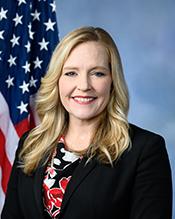H.R. 2438: Foster Care Tax Credit Act
This bill, known as the Foster Care Tax Credit Act, aims to create a refundable tax credit for families that act as foster parents. Here are the key points regarding what the bill proposes:
Foster Care Tax Credit
The bill introduces a new section to the Internal Revenue Code that allows eligible taxpayers to claim a tax credit of $850 for the taxable year if they have a qualifying foster child placed with them for at least one month. This credit is designed to assist foster families with some of the financial burdens they may face.
Eligibility Requirements
- An eligible taxpayer must have a qualifying foster child placed in their care for at least one month during the taxable year.
- A qualifying foster child is defined as a child under the age of 17 who is a citizen, national, or resident of the United States.
- Taxpayers who have already claimed a similar credit for the qualifying foster child under a different section are not eligible for this credit.
Credit Limitations
The amount of the tax credit may be reduced based on the taxpayer's modified adjusted gross income (MAGI). Specifically, the credit will be reduced if the MAGI exceeds a certain threshold:
- $250,000 for married couples filing jointly.
- $150,000 for individual taxpayers.
- $125,000 for married individuals filing separately.
The credit is reduced in proportion to the amount by which the MAGI exceeds these thresholds, but will not go below zero.
Information Reporting
The bill requires authorized placement agencies and courts to report information about every qualifying foster child placed with a family during the year. This report must include details such as:
- Name, address, and taxpayer identification number (TIN) of the foster family.
- Name of the qualifying foster child.
- Dates of the child's placement.
Provisions for Prior Claims
Taxpayers who have made prior fraudulent or reckless claims for credits under this bill will be barred from claiming the credit for certain periods. Specifically:
- No credit will be available during a disallowance period of ten taxable years for fraudulent claims.
- A two-taxable-year disallowance period for reckless claims applies.
Education and Outreach
The bill mandates the Secretary of Health and Human Services, in conjunction with the Secretary of the Treasury, to conduct outreach to educate foster families about available tax benefits, encouraging better awareness of the provisions that may assist them financially.
Study on Foster Placements
Additionally, the bill directs a study to be conducted on the financial burdens faced by foster families dealing with multiple emergency and short-term placements of children. This study will also look into the challenges of verifying and documenting such placements, and a report is to be submitted to Congress within a year of the bill's enactment.
Effective Date
The amendments proposed by this bill are set to apply to taxable years beginning after December 31, 2024.
Relevant Companies
None found
This is an AI-generated summary of the bill text. There may be mistakes.
Sponsors
2 bill sponsors
Actions
2 actions
| Date | Action |
|---|---|
| Mar. 27, 2025 | Introduced in House |
| Mar. 27, 2025 | Referred to the Committee on Ways and Means, and in addition to the Committee on Education and Workforce, for a period to be subsequently determined by the Speaker, in each case for consideration of such provisions as fall within the jurisdiction of the committee concerned. |
Corporate Lobbying
0 companies lobbying
None found.
* Note that there can be significant delays in lobbying disclosures, and our data may be incomplete.
Potentially Relevant Congressional Stock Trades
No relevant congressional stock trades found.

